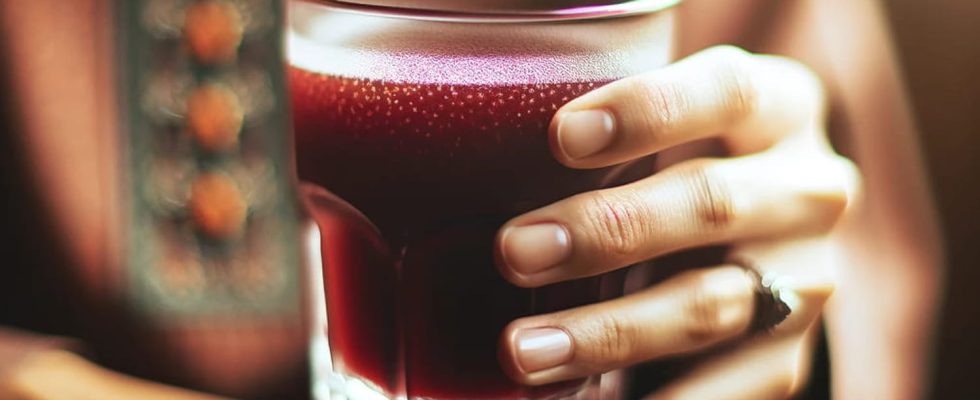Researchers have discovered that a juice, naturally rich in antioxidants, was able to reduce blood pressure and thus prevent cardiovascular diseases.
Arterial hypertension is the leading chronic pathology in France: 17 million adults are affected (i.e. 1 in 3 adults), including 6 million without knowing itestimates Public Health France in 2023. Too high blood pressure is one of the main cardiovascular risk factors, that is to say it greatly increases the risks of developing cardiovascular complications (Stroke, myocardial infarction, renal failure, arteriopathy of the lower limbs, etc.), hence the importance of monitoring it regularly and treating it. In a study published in The Journal of Nutritionresearchers at Boston University discovered that the daily consumption of 3 glasses of juice bissap was associated with a significant reduction in blood pressurewhich contributes significantly to improve heart health and to prevent cardiovascular disease.
A diuretic and draining action
Bissap juice, also called carcadetis a drink originating from Africa, obtained from an infusion of hibiscus flowers. In addition to tasting naturally sweet, fruity and tangythis red juice would have a hypotensive actiondue in particular to the presence ofanthocyaninsnatural antioxidant pigments known to increase the resistance of blood vessels and promote blood fluidity. Thus, by supporting the proper functioning of the vessels and promoting blood circulation, bissap helps regulate blood pressure in the arteries. The bissap also a diuretic and draining action, that is to say, it increases the volume of urine. And by promoting the elimination of water and sodium from the body, they reduce the volume of blood circulating in the veins and therefore blood pressure.
3 glasses per day for 6 weeks
To achieve this result, American researchers carried out a clinical trial on 65 adults aged 30 to 70 suffering frommild high blood pressure, but not taking any hypotensive medication. They were divided into two groups: the first had to drink 3 glasses of bissap juice from 240ml each per day for 6 weeks, while the second group had to drink 3 equivalent glasses of a “placebo” drink, during the same period. At the end of 6 weeks, the researchers observed, in people who had consumed bissap, a 7% reduction in systolic blood pressure (the top number when measuring blood pressure), which corresponds to the pressure in the arteries when the heart contracts or beats. Diastolic blood pressure (the bottom number, which indicates the tension when the heart is at rest) was also lower by -3%. “These results suggest that daily consumption of bissap juice (hibiscus infusion), in sufficient quantities that can be easily integrated into the diet, lowers blood pressure in mildly hypertensive adults and may prove to be a simple dietary change recommended“, specify the researchers who must nevertheless continue their research. Generally speaking, bissap juice is a safe drink, but it is preferable to seek the advice of a doctor before consuming it, especially in pregnant women and breastfeeding, people suffering from liver pathologyhypotension (voltage already low) and diabetes.
